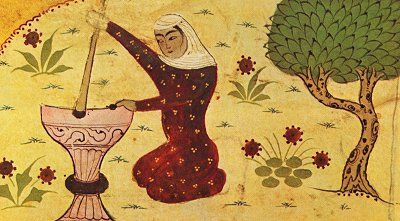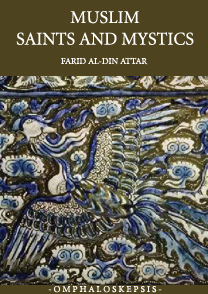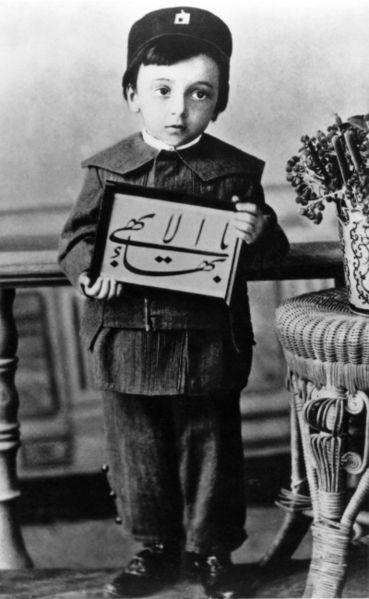In several Tablets Bahá’u’lláh has described the fear of God as the cause of nearness to Him. This statement may be difficult for some to appreciate. For why should a loving God be feared? Fear is engendered in man when he feels inadequate to deal with a situation, and confidence is generated when he finds himself completely in control. For example, a man who has been given a responsibility but has failed to fulfil his obligations will be filled with fear when he meets his superiors, because he knows that they will deal with him with justice. Man, in this life, fails to carry out the commandments of God. He commits sins and violates the laws of God. In such a case how can he feel at ease when he knows that one day he will be called on to account for his deeds? If man does not fear God, it is a sign either that he is without shortcomings or that he has no faith in the next life when he will have to answer for his wrong-doings. In The Hidden Words Bahá’u’lláh counsels His servants in these words:
O Son of Being!
Bring thyself to account each day ere thou art summoned
to a reckoning; for death, unheralded, shall come upon thee
and thou shalt be called to give account for thy deeds.
The closer one draws to God, the more he becomes conscious of his wrong-doings and the more he will fear God. The following passages, gleaned from the writings of Bahá’u’lláh, clearly indicate that the fear of God is the means by which man may acquire spiritual qualities and grow stronger in faith.
The fear of God hath ever been a sure defence and a safe
stronghold for all the peoples of the world. It is the chief
cause of the protection of mankind, and the supreme instrument
for its preservation. Indeed, there existeth in man a
faculty which deterreth him from, and guardeth him against,
whatever is unworthy and unseemly, and which is known as
his sense of shame. This, however, is confined to but a few;
all have not possessed, and do not possess, it. It is incumbent
upon the kings and the spiritual leaders of the world to lay
fast hold on religion, inasmuch as through it the fear of God
is instilled in all else but Him.
And again:
Admonish men to fear God. By God! This fear is the chief
commander of the army of Thy Lord. Its hosts are a praiseworthy
character and goodly deeds. Through it have the
cities of men’s hearts been opened throughout the ages and
centuries, and the standards of ascendancy and triumph
raised above all other standards.
In the Words of Wisdom, He states:
The essence of wisdom is the fear of God, the dread of His
scourge and the apprehension of His justice and decree.
(Adib Taherzadeh, The Revelation of Bahá’u’lláh v 2, p. 93)
… that which guardeth and restraineth man both outwardly and inwardly hath been and still is the fear of God. It is man’s true protector and his spiritual guardian.
(Bahá’u’lláh, Tablets of Bahá’u’lláh, p. 93)
Know ye that true wisdom is to fear God, to know Him, and to recognize His Manifestations. This wisdom, however, can be attained only by those who detach themselves from the world, and who walk in the ways of the good pleasure of their Lord.
(Bahá’u’lláh, The Summons of the Lord of Hosts, p. 227)
He should cleanse his heart from all evil passions and corrupt desires, for the fear of God is the weapon that can render him victorious, the primary instrument whereby he can achieve his purpose. The fear of God is the shield that defendeth His Cause, the buckler that enableth His people to attain to victory. It is a standard that no man can abase, a force that no power can rival. By its aid, and by the leave of Him Who is the Lord of Hosts, they that have drawn nigh unto God have been able to subdue and conquer the citadels of the hearts of men.
(Bahá’u’lláh, Gleanings from the Writings of Bahá’u’lláh, p. 271)
My son, if thou wilt receive my words, and hide my commandments with thee;
So that thou incline thine ear unto wisdom, and apply thine heart to understanding;
Yea, if thou criest after knowledge, and liftest up thy voice for understanding;
If thou seekest her as silver, and searchest for her as for hid treasures;
Then shalt thou understand the fear of the LORD, and find the knowledge of God.
(Proverbs 2:1-5)
 When they sat down there was a napkin with two loaves laid before them. They were well content. A beggar arrived just then, and Rabe’a gave him the two loaves. The two men of religion were much upset, but said nothing. After a while a maidservant entered with a handful of warm bread.
When they sat down there was a napkin with two loaves laid before them. They were well content. A beggar arrived just then, and Rabe’a gave him the two loaves. The two men of religion were much upset, but said nothing. After a while a maidservant entered with a handful of warm bread.

